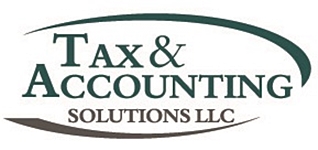If you’re self-employed and paying your own health insurance, you may be eligible for a large tax deduction. Those who can claim the deduction include: Small businesses, sole proprietorships, qualified joint ventures or farmers reporting income on Schedule C, Schedule C-EZ or Schedule F. Partners with self-employment earnings reported on Schedule K-1. Shareholders who were… Read More
If you use an automobile for business, you may be able to receive a tax deduction to lower your income tax. Deducting auto expenses requires diligent recordkeeping and accurate calculations. There are two ways to calculate your auto deductions: Actual expenses. Track all eligible deductions, such as the cost of gas, oil, repairs, insurance, maintenance,… Read More
An Accountable Plan is a formal arrangement to advance, reimburse or provide allowances for business expenses. The primary advantage is that your business can deduct expenses (subject to a 50% limit for meals and entertainment) and employees can usually exclude 100% of advances or reimbursements from their income. We encourage you to implement an Accountable… Read More
Truck drivers, or other transportation workers, can claim a variety of tax deductions while on the road. Fuel, daily meal allowances, truck repair (maintenance), overnight hotel expenses and union dues are some of the tax deductions available. However, local truck drivers typically cannot deduct travel expenses. Transportation workers are employed or self-employed individuals whose work… Read More
As an employer, it’s important to remember that you are responsible for all tax deposits, even if you outsource your payroll services to a third party. For example, if you forward the deposit to a payroll company and it fails to make the deposit, the IRS will still assess you for the tax, plus any interest and… Read More
Last December, President Obama signed the Stephen Beck, Jr., Achieving a Better Life Experience (ABLE) Act into law. The enactment of ABLE resulted from an eight-year campaign to gain approval for tax-free savings accounts to help individuals and families finance disability needs. The ABLE Act mirrors the provision of a §529 plan (an account used to fund… Read More
Once again the following tax provisions have expired: $250 educator expense deduction (school teachers who buy school supplies for their classes) Tuition and fees deduction for higher education expenses (which helps college students or their parents) Itemized deduction for state and local general sales tax (the option to deduct state and local sales taxes instead… Read More
As of January 1, 2015, businesses with 100 or more employees must provide health insurance to 70 percent or more of their full-time equivalent employees, or they could face a tax penalty of up to $2,000 per employee, per year. Starting in 2016, businesses with 100 or more employees must provide health insurance to 95… Read More
New IRS scams continue to surface in an attempt to take your money or personal information. Deceitful communications come via phone, email, post and sometimes even a knock on your door. It’s important to know that the IRS does occasionally contact taxpayers, but when they do, it’s most often by mail. Sometimes the IRS needs… Read More
UPDATE, 6/24/15: Included in the tax package that Gov. Susana Martinez signed into law in mid-June was the state income tax deduction of up to 25 percent on out-of-pocket medical expenses. For a brief period, it looked like this deduction, which allows taxpayers to deduct a percentage of unreimbursed medical expenses based on filing status and adjusted… Read More

